Studies how to write the report of short Japan. [ 日本の小論を学ぶ ]
外国の方が日本語で小論を記述される時の参考書として「ルミルの下じき 小論の初級者編」を英訳しました。
When a title is required, consider the title carefully.
The title is the most important sentence. When you write an essay with no title, the first three lines are the most important. If the number of words is beyond 500 words, it is better to write its conclusion first.
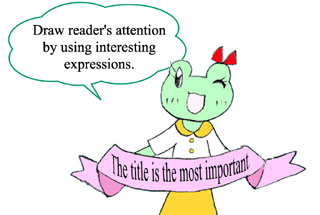
Main points and expressions can be subjective or objective.
In general, you can use either an objective or a subjective form for main points and expressions. However, it is necessary to be consistent. We think that the subjective form is useful for the faculty of education and the objective form is useful for the faculty of literature and law.
It is important to write sentences chronologically.
Basically sentences should be written in a chronological order except when a short conclusion is written at the beginning of the section. In Japanese, you do not have to consider conditions of a past or a present tense. It is natural for readers to implicitly understand that the event orders form the sentence orders.
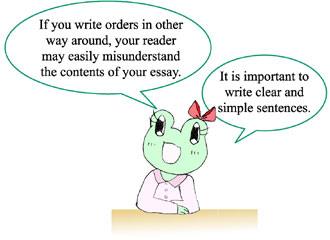
When you write about yourself, choose the expressions carefully.
Use Jibunas a general term of the third person. For the first person, use a uniform expression of eitherwatashior watakushi. For example, you write “Watashiwakikouwoshiboushiteimasu (I wish to go to your school.)” instead of “Jibunwakikouwoshiboushiteimasu(I wish to go to your school.)”.
When you write your strong point, also add real episodes.
“Watashiwagannbareruninngendesu (I am the person to keep going.)” won’t make the exam passed. It is better to add an episode of “Watashiwamaiasaichijikannhayakugakkouniiki, san kiro no ranninguwotuzuketeimasu(Every day, I go to school one hour earlier to do three kilometers of running)”. If you do not have any episode, write it by using hearsay expression “Nakamawakouhannituyoiningen to ittekuremasu(My friends say, “I am the person strong in the second half.”)”.
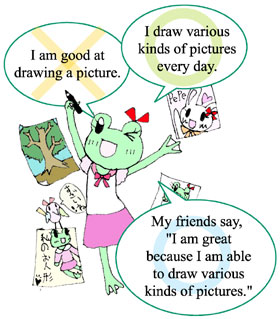
Be careful about the status of verbs whether to be active or stative.
When you use verbs, be careful about whether the word indicates an ongoing behavior or a usual state.
Do not use negative expressions very often.
Avoid using double negative such as “Watashiwadoryoku shite inaikamokuwaarimasen(I do not have any subject which I do not my best.)”. In addition to that, refrain from using a negative form if you can. When you want to mean that, use the word that includes the meaning of the negation in it.
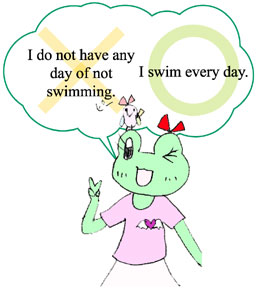
To use shorter expressions is easily understood.
Basically punctuations are used in pauses between sentences. Be careful not to become unclear sentences, using them too much or not too much.
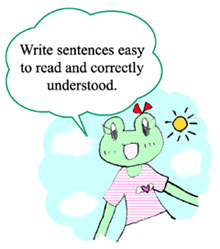
Be careful about words of different meaning of the same pronunciation.
“hajime (shokai)(beginning)” and “hajime (suta-to) (start)” are kanji often miswritten. If the number of words is affordable, it is better to avoid the mistake by writing “hajime” in hiragana.
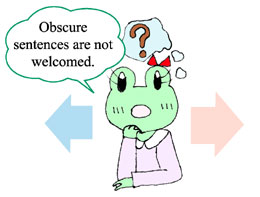
Put modifying words such as an adjective word (an adjective phrase) and an adverb word (an adverb phrase) immediately before the intended word.
“Bouenkyo de gake no uekaratookuwonagameteiruhitowomita” is not clear sentence. We advise writing clearly that “gake no uekaratookuwonagameteiruhitowomita (I saw the person through a telescope who looks to the distance from a cliff.)” or “gake no uekaratookuwobouenkyou de nagameteiruhitowomita(I saw the person who looks to the distance from a cliff through a telescope.)”.
Unify the style of your sentences in either “desumasu style” or “dearu style.”
In essay, you can choose either “desumasu style (polite sentence)” or “dearu style (favorite sentence)”. Another writing style is “honorific style,” but the honorific style is not appropriate for essays.
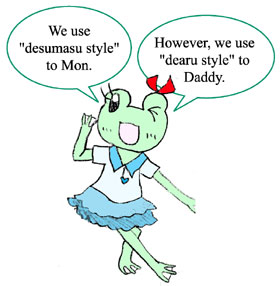
END




